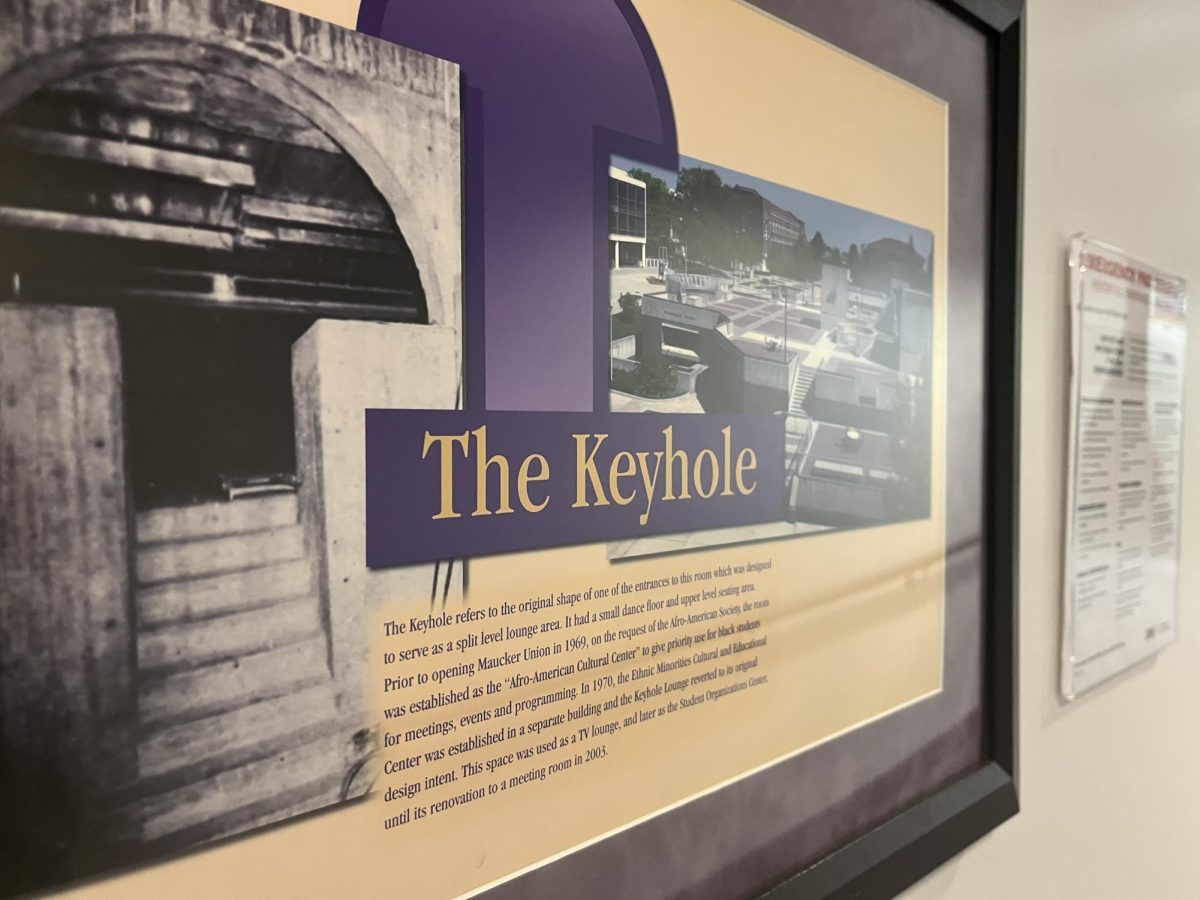“The Soul Food Museum” is an exploration of family, faith and food within the African-American community and a rejection of negative stereotyping of African-Americans in Western mass media. It was conceived, designed, directed and written by DeRod Taylor, communication studies graduate assistant, with contributions by Jerica Crawford, Academic Learning Center graduate assistant and communication studies graduate student. It played at 7:30 p.m. March 6-7 at the Wesley Foundation.
In a highly unconventional theatrical approach, the first act of “The Soul Food Museum” performs all three scenes simultaneously in different rooms, shuffling the broken-up audience (as dictated by colors on the back of each ticket) from scene to scene in smaller groups.
This allows for each group to witness different characters’ perspectives in differing order, coloring their understanding and expectations of the conflict within the family.
For example, the ‘green’ group first witnesses the father Andre, played by Dawne McClure, communication studies graduate student, express his remorse over a knee-jerk reaction he had toward his son Jamal, played by Taylor, a year prior.
Two scenes later, the group observes Jamal’s side of the story as he expresses his hesitancy to face his father due to the extreme hurt his father’s words had caused him.
Because the ‘green’ group sees Andre’s scene first, the audience is led to sympathize with the father’s desire to make up with his son; while the other two groups, which both witness Jamal’s scene first, are led to sympathize instead with Jamal’s feelings.
This is a very challenging approach to effectively write, as it requires that the narrative exposition satisfy all three viewing orders without becoming noticeable and tedious. And Taylor triumphantly succeeds.
Through “The Soul Food Museum,” Taylor reveals that he is not only a highly skilled actor but also a very accomplished scriptwriter. The dialogue is very natural, managing to weave in exposition, history, humor and emotions effectively. And despite the huge number of characters, each manages to have their own unique characteristics that make them both charming and memorable.
Though visually not the most convincing family to grace the stage, the entire cast in “The Soul Food Museum” exudes familiarity with and love for one another in such a way as to go beyond the boundaries of body shapes and present one of the most convincing families I have ever been privileged enough to see.
Every cast member is so talented that it is impossible to mention any moment in the entire show that is not superbly acted and emotionally convincing, except for the jarring and unexpected, out-of-left-field ending.
Besides a short introduction to the performance by Evans Schares, communication studies graduate assistant, who confusingly introduces himself as the director, there is little indication that Schares is playing a character named Travis until he barges into the heartwarming ending scene of the second act.
He proceeds to shriek demands that his cast “black up” their performances, revealing that the entire show had been a pilot episode for a television series. The cast, along with production studio owner Lea, played by Montana Smith, communication studies graduate assistant, rejects his demands to play into negative stereotypes of African-American life and plans to move forward with the show as is. He storms off the set and everyone rejoices in their victory.
It becomes apparent in the talk-back that Taylor and the rest of the cast are aware that the reality of negative stereotyping of minorities is much more complicated and nuanced than evil producers, especially considering Schares’ comment regarding the responsibility of white allies to not consume those stereotypes.
This makes it all the more perplexing that while priding itself in rejecting negative African-American stereotypes, “The Soul Food Museum” simultaneously includes a character that is such an over-the-top and blatant caricature of a selfish, pig-headed producer/director and concludes on such a rose-colored note.
Yet, despite the baffling ending, “The Soul Food Museum” is overwhelmingly a beautiful work that pushes its audience to think, question and rally behind greater positive representations of African-American families through its exploration of the importance of this specific family’s tradition of Sunday dinner.






